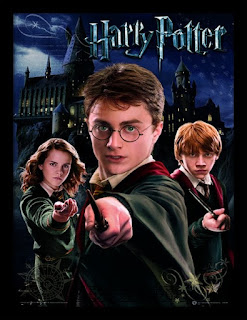Parents in YA Fiction? What Parents? (Mary Strand)
With Mother’s Day in May and Father’s Day in June, the peeps at YA Outside the Lines agreed to blog about parents in YA fiction this month.
The irony: young adult fiction doesn’t typically celebrate parents.
And that’s an understatement.
If you think about it, it’s not a surprise. In YA novels, teenagers are the heroes and heroines of the story. In all fiction, the hero or heroine ultimately needs to make it on his, her, or their own. They have to save themselves. Whether they succeed or absolutely blow it, it has to be on them.
So, conveniently, YA stories have a disproportionate number of teen characters with parents who are dead, divorced, absent, or simply not paying attention. One easy way to achieve this without killing off an untold number of parents, of course, is to send the teens off to boarding school or a similar place.
Harry Potter’s parents are dead. Hermione’s are muggles and simply not part of the story. Ron is an exception, because his mom in particular is very much on top of things, even at a distance. I always think of the “howler” she sends Ron when he and Harry “borrow” the airborne car. But even so? He’s at Hogwarts, and even Mrs. Weasley has no idea what he’s up to most of the time.
Of
course, there are also parent substitutes, and Dumbledore is the ultimate
parent substitute for Harry. (Aside from Sirius Black. Sorry! I’m a Harry Potter geek.) But that’s why, to
serve the story, Dumbledore had to die at the end of book 6.
Book 7 had to be Harry’s triumph, and he had to do it without parents or parent
substitutes. (Aside from the small cameo from Dumbledore toward the end.)
A few other current classics:
Tris in the Divergent books starts out with two parents, but they’re in the Abnegation faction, where Tris was raised. The story wouldn’t work if Tris had stayed in Abnegation, because her parents would’ve been there to help her. Instead, she chose Dauntless, where she’s on her own.

Katniss
in the Hunger Games: her dad is dead
and her mom is effectively MIA. AND she’s sent off to the Capitol to fight for
her life. AND her main mentor is a drunk who’s often MIA. Yep, she’s definitely
on her own.
One
exception to the “we must get rid of the parents” rule is the YA movie Easy A. Olive has two parents who are
very much alive, not to mention hip and hilarious. (One of them is played by
Stanley Tucci, whom I adore.) Olive has a great relationship with her parents.
Even so, she proceeds to go through holy hell as the subject of wildly ugly (and
false) rumors that ruin her reputation. Throughout, her parents are concerned
and completely there for her ... but she chooses to handle the problem on her
own. Still, there are a few great conversations between Olive and one or both
of her parents, and they demonstrate that you don’t need to kill off
parents in YA novels in order to force the teens to handle the big issue on
their own.
And
that inspires me.
Maybe it doesn’t inspire me enough to get rid of the oh-so-convenient boarding school where my current YA heroine is very much handling her problems without parental input — heh heh — but generally? Oh, yeah. Most of the YA novels I’ve written or am writing involve teens living at home with both parents. I think it’s a little harder to write YA novels that way, because the parents can’t get in the way of the hero or heroine’s story, but two parents reflect reality for a lot of teens.
Of course, dead or divorced or MIA parents reflect reality for a lot of teens, too, so I do try to reflect that diversity if I can.
Because that’s life.
p.s. Thanks for letting me geek out about a few YA books and movies I love!
Mary Strand is the author of Pride, Prejudice, and Push-Up Bras and three other novels in the Bennet Sisters YA series. You can find out more about her at marystrand.com.



Geek on with panache
ReplyDeleteHa ha! Thanks!
DeleteI hadn't thought about parent substitutes. That's so true.
ReplyDeleteYeah, it's really just the "mentor" of the hero's journey.
Delete